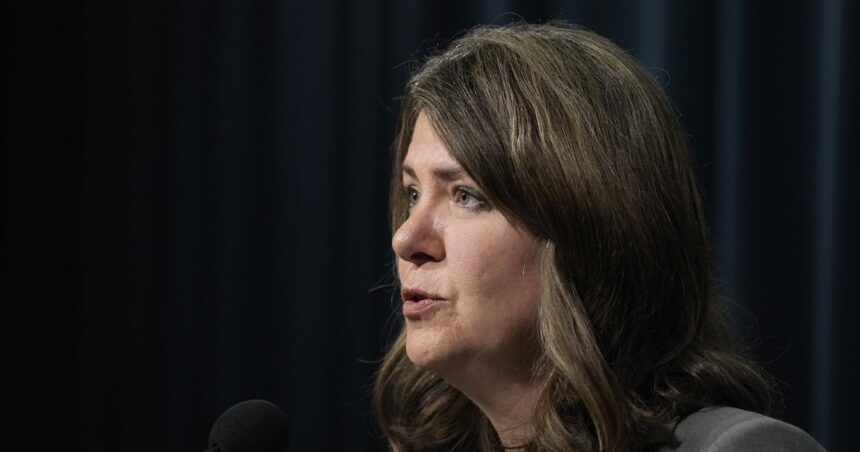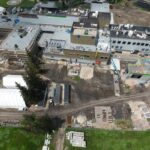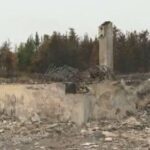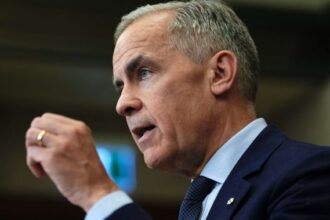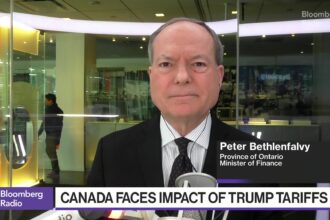In a bold move set to intensify Alberta-Ottawa tensions, Premier Danielle Smith’s “Alberta Next” panel launches its provincial tour this week, inviting residents to voice grievances about federal policies directly affecting the province. The initiative, announced earlier this month, marks a significant escalation in Alberta’s ongoing sovereignty campaign.
“Albertans deserve a platform to express their legitimate concerns about how federal decisions impact their livelihoods,” Smith stated at yesterday’s press conference in Edmonton. “These town halls aren’t just about airing frustrations—they’re about charting a path forward that respects provincial jurisdiction.”
The panel, comprised of seven members including former cabinet ministers and policy experts, will visit twelve communities starting in Medicine Hat on Thursday. Their mandate extends beyond mere consultation, as they’re tasked with formulating concrete recommendations for establishing what Smith calls “maximum provincial autonomy within Confederation.”
Political analysts view this development as strategically timed. “This is clearly designed to leverage growing regional discontent ahead of both provincial and federal election cycles,” notes Dr. Melissa Chen, political scientist at the University of Calgary. “The question remains whether this represents substantive policy development or primarily serves as political theater.”
The federal government’s response has been measured but firm. Federal Intergovernmental Affairs Minister Dominic LeBlanc emphasized Ottawa’s commitment to constructive dialogue while cautioning against what he termed “constitutional overreach.” According to recent polling, approximately 62% of Albertans support increased provincial autonomy, though views differ significantly on specific mechanisms.
Central to the panel’s agenda are contentious issues including resource development, environmental assessment processes, and federal carbon pricing. Economic analyses from the Alberta Institute for Resource Economics suggest the province could potentially retain an additional $13.7 billion annually through restructured resource revenue sharing—a figure disputed by federal economists.
Panel chair Jason Goodstriker, a former Treaty 7 representative, insists the initiative embraces diverse perspectives. “We’re particularly focused on ensuring Indigenous voices are centered in these discussions,” Goodstriker explained. “True provincial autonomy must include meaningful partnerships with First Nations.”
Critics, however, question both the process and motives. Opposition Leader Rachel Notley characterized the panel as “a $2.4 million taxpayer-funded partisan exercise” designed to “manufacture conflict rather than solve real problems.” Community advocacy groups have expressed concerns about panel composition and whether dissenting viewpoints will receive fair consideration.
The initiative follows Alberta’s controversial Sovereignty Act, which grants the province power to refuse enforcement of federal laws deemed harmful to Alberta’s interests. Legal scholars continue to debate the constitutionality of these measures, with several court challenges pending.
As Canada navigates an increasingly fragmented federal landscape, these town halls represent more than provincial politics—they reflect fundamental questions about the future of Canadian federalism. Will Alberta’s assertiveness catalyze meaningful reform or further entrench regional divisions that undermine national cohesion?

